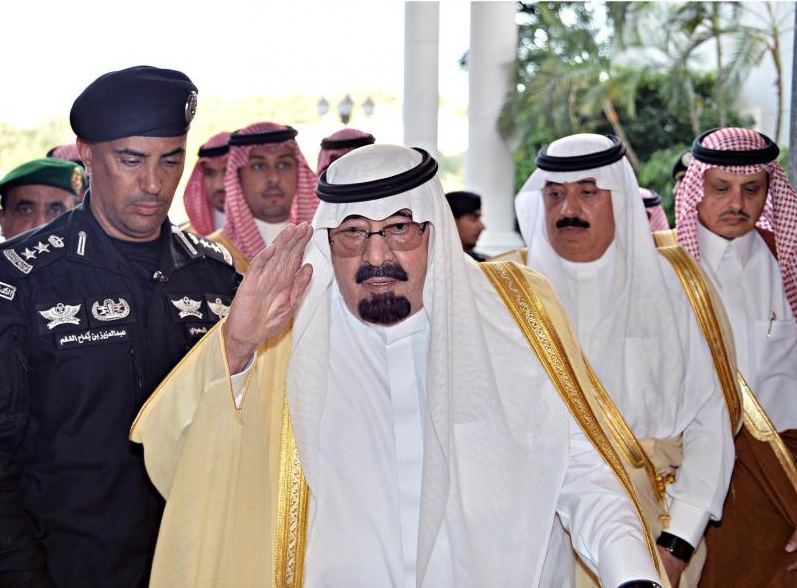In a hard-hitting New York Times op-ed, Saudi Arabia’s Ambassador to the United Kingdom Prince Mohammed Bin Nawaf Bin Abdulaziz Al Saud wrote that while the Western-Saudi relationship friendship has lasted for decades, Saudi Arabia will pursue its own interests in the Middle East, even if they diverge from those of the Western powers.

Mohammed Bin Nawaf Bin Abdulaziz Al Saud
In a direct critique of the United States, the United Kingdom and others, the Ambassador says that “rather than challenging the Syrian and Iranian governments, some of our Western partners have refused to take much-needed action against them. The West has allowed one regime to survive and the other to continue its program for uranium enrichment, with all the consequent dangers of weaponization.”
The need to pursue its own interests is, as the Ambassador wrote, part of Saudi Arabia’s “enormous responsibilities within the region, as the cradle of Islam and one of the Arab world’s most significant political powers” and that the challenges have “tested” the decades-long alliances.
The comments follow remarks by Prince Turki al Faisal earlier in the week at the World Policy Conference in Monte Carlo, and in an interview with SUSTG.org’s sister publication, SUSRIS. At the forum in Monte Carlo, Prince Turki blasted President Obama, saying that Saudi Arabia has “seen several red lines put forward by the president, which went along and became pinkish as time grew, and eventually ended up completely white…When that kind of assurance comes from a leader of a country like the United States, we expect him to stand by it.”

Prince Turki al-Faisal
And in an interview conducted in Riyadh and published this week in SUSRIS with editor Patrick Ryan, the Prince addressed the Kingdom’s concerns with American policy toward Iran:
“I think there is anxiety. The anxiety is that after ten years of negotiations we’ve only reached this temporary fixed moment of agreement for what is an inconclusive result. So that is a call for anxiety. Are we going to wait another ten years before the next step is done? From here I think people are worried.”
On Syria, the divergence between Saudi Arabia and the United States is touchy due to the decision by the United States to suspend aid to approved Syrian resistance groups because of a recent seizure of supplies by Islamists. In an op-ed that appeared on Al Arabiya English’s website, Saudi journalist Jamal Khashoggi took the United States to task for this decision:
“The reason why the aid was stopped was that the Islamic Front seized the non-military stores that were managed by the Free Syrian Army, which began to lose their positions on the ground at a rapid pace with the growth of Islamic factions. The U.S. knows well that Saudi Arabia, Qatar and Turkey have already started to help these factions – unfortunately without great coordination between the three countries, – recognizing that these factions have become the most efficient power on the ground. These factions alone have the ability to stop the military and ideological progress of the Islamic state in Iraq and the Levant and the al-Nusra Front, which are getting closer to moderate Islamic forces….The U.S. actions revealed the collapse of the Coordination Office that was founded over a year ago in Antioch and Oman by the forces that are interested in supporting the Syrian revolution. These actions have probably reinforced Saudi Arabia’s doubts about the true intentions of the U.S. especially in Syria: the U.S. will most probably urge for a peaceful solution at the Geneva 2 peace conference and the Saudis and the Iranians will cooperate to impose this solution on the Syrian people!”
Although the rift between the West and Saudi Arabia over Middle East policy issues has been brewing for some time, the issue came to a head last month, when the Wall Street Journal’s Ellen Knickmeyer reported that Chief of General Intelligence and Secretary-General of the National Security Council (and former veteran Ambassador to the United States) Prince Bandar Bin Sultan was vociferous about Saudi Arabia’s discontent with American policy in Syria, specifically after the United States decided not to strike Syrian regime targets following a chemical attack reportedly perpetuated by the Assad regime that killed hundreds. Bandar Bin Sultan is in charge of the kingdom’s efforts to fund, train and arm rebels fighting in Syria.
But some analysts believe that the divergence between the West and Saudi Arabia over how to counter shared adversaries like Iran and the Assad regime in Syria is small compared to the continued areas of cooperation. “We’re training their National Guard, we’re doing security plans and training for oil terminals and other facilities, and we’re implementing one of the biggest arms deals in history,” expert Thomas W. Lippman noted last month.









